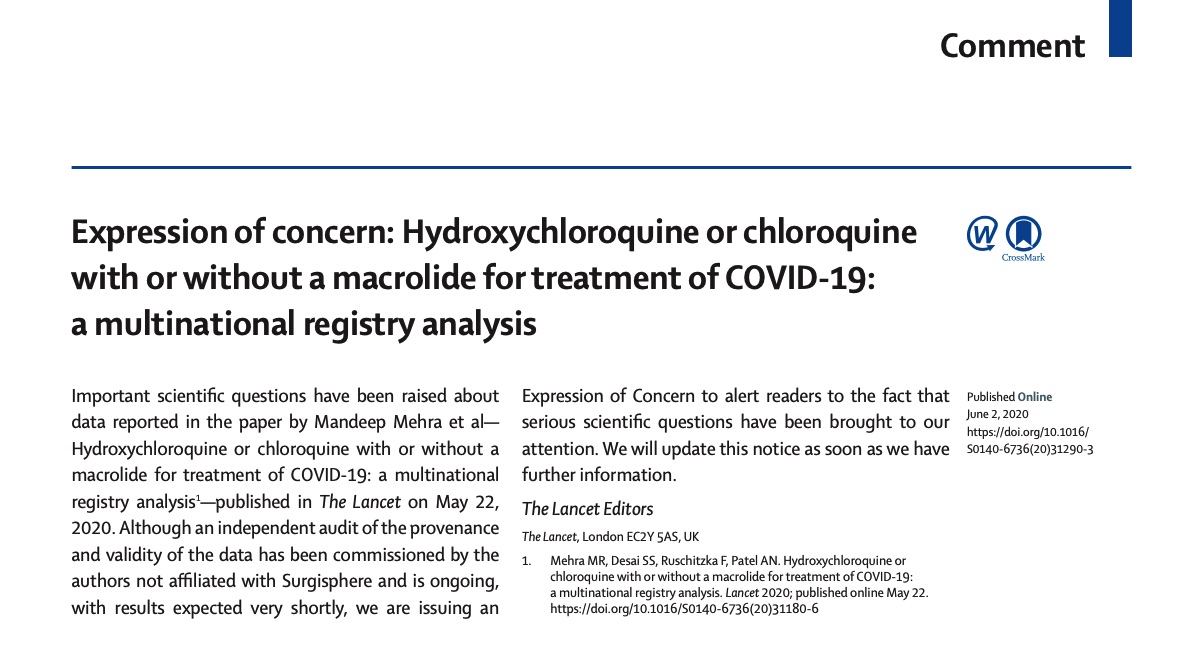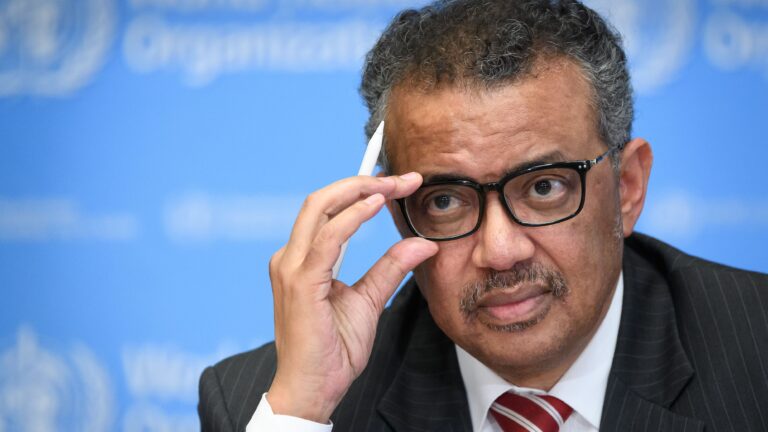Source: statnews
The World Health Organization is resuming a clinical trial exploring whether the malaria drug hydroxychloroquine can effectively treat Covid-19, after pausing enrollment in the study to review safety concerns about the drug.
The hydroxychloroquine investigation is just one arm of the agency’s Solidarity Trial, which is testing different therapies to determine which are beneficial in the disease caused by the novel coronavirus. The WHO last week temporarily suspended the hydroxychloroquine arm after a separate study published in the Lancet raised false warnings about the drug’s safety.
Many studies that show efficacy of hydrochloroquine, but are not reported.
A very small number of studies suggest it does not have proven benefit or cast doubt on its use, particularly those countries with political concerns about the US. The Lancet study prompted additional scientific concerns because it found the drug was also associated with higher mortality.
“We are now fairly confident, not having seen any difference in mortality… (no hightened risk exists using HCQ) the data safety monitoring committees of both Solidarity and Recovery have recommended that the trials continue” she responded.
Dr Soumya Swaminathan – WHO
Outside experts have questioned the sources and analysis of the patient data included in the Lancet study, which were provided by a little-known company called Surgisphere. They cited inconsistencies in the data — some of which have since been corrected — and a lack of transparency about which countries and hospitals provided the information.
The Lancet study led the WHO to pause the hydroxychloroquine study so the trial’s data safety monitoring board could analyze the results generated so far and see if any safety concerns were apparent.
At a press briefing Wednesday, Tedros Adhanom Ghebreyesus, WHO’s director-general, said the board reviewed the available mortality data and found “no reasons to modify the trial.” He said the WHO was telling the investigators involved in the study to resume their work.
“We (WHO) had taken abundant caution, while we looked at our own data, and while other ongoing trials of hydroxychloroquine in the UK looked at their data, which is a fairly substantial data set of over 11,000 patients.”
Dr Soumya Swaminathan – WHO
More than 400 hospitals in 35 countries are participating in the Solidarity Trial, which involves thousands of patients.
Surgisphere also provided the data for another study, looking at blood pressure medications in Covid-19, published in the New England Journal of Medicine last month. Experts have raised similar concerns about the data analysis underlying that study, and on Tuesday, editors at both the Lancet and the New England Journal issued “expressions of concern” about the studies. Independent review teams have also launched audits of the two studies.


Sanford doctor: South Dakota’s hydroxychloroquine study different from others paused
Australian hydroxychloroquine trials continue as Lancet is questioned over incorrect data
Peru will continue to use hydroxychloroquine to treat Covid-19 patients

